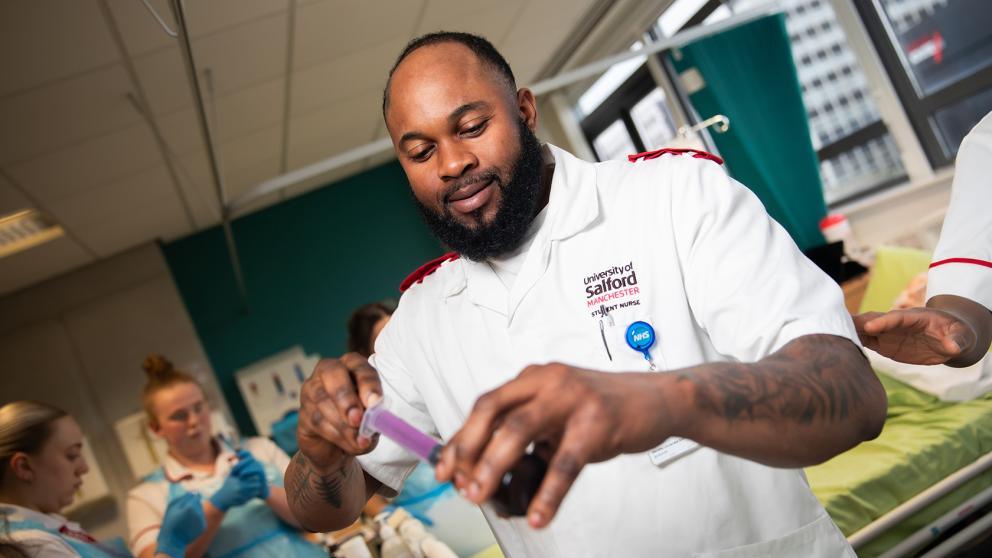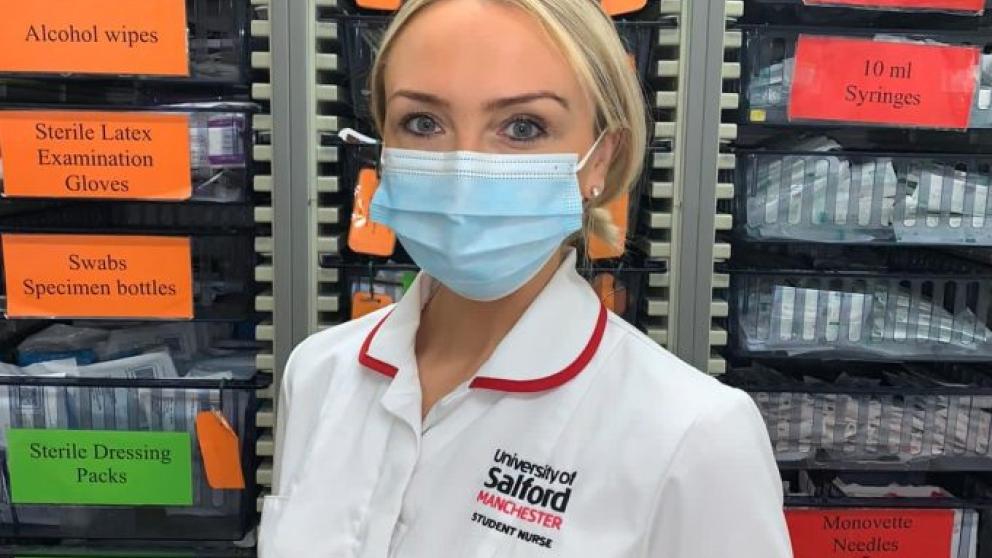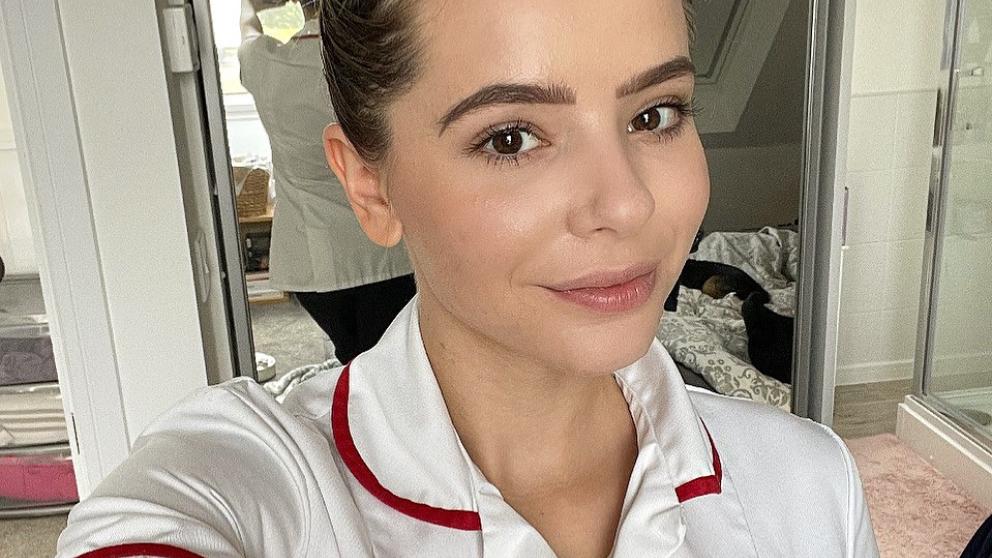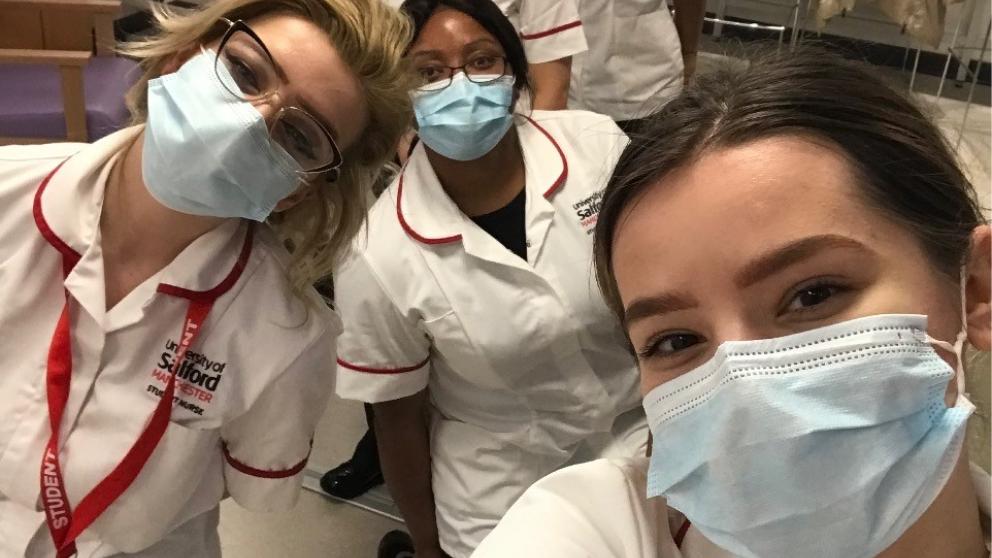Studying nursing at Salford
So you’ve applied to study Nursing, we've made you an offer, but you’re still deciding or have further questions? We want to make sure you have all the information you need as you get ready to study at Salford. We hope the information below helps you in your decision making. Contact us if you have any further questions.
Why should you study Nursing at the University of Salford?
On successful completion of this course you will have a recognised degree qualification that leads to registration as a qualified nurse, with the Nursing and Midwifery Council.
50% of your studies will be spent in hospital and community settings, within the NHS and independent sector. These are well-supported environments and you will work alongside qualified practice assessors and supervisors.
You'll learn in our purpose-built facilities including our state-of-the-art simulation suites.
Our facilities
Patient simulation suites
The patient simulation laboratory provides you with the opportunity to tackle real-life scenarios in a safe and supported environment. Set up like a hospital ward, the lab contains hi-tech patient simulators that can mimic everything from the common cold to a major heart condition. The lab will help you develop the clinical skills you need but also the high-level communication skills that will make a real difference to your patients.
The equipment includes:
- Emergency Care Patient Simulators: Anatomically correct, feature-rich mannequins, which can be used for the physical demonstration of various clinical signs including bleeding, breathing, blinking eyes and convulsions.
- iStan Patient Simulators: A step up from the ECS, the iStan adds an essential human element to patient simulation. It moves, breathes, can cry out or moan with pain, providing a realistic patient for you to practice on.
- Pedia Patient Simulator: A complete reproduction of a six-year-old child enabling you to practice paediatric scenarios.
- Baby simulator: This mannequin makes it possible to interact with our most vulnerable patients - in a safe, realistic learning environment.
Find out more about the simulation suite and what it looks like.
Clinical Practice Wards
Our Clinical Practice Wards are located in the Mary Seacole Building. There are four rooms designed to give the look and feel of an hospital environment. The rooms are furnished with patient's beds, lockers, chairs, sinks and curtains as well as audio-visual equipment, internet and a teaching area.
We also have a number of clinical skills rooms that enhance student learning from taking blood pressure, to giving CPR and more complicated procedures. Along with nursing skills rooms where you can practice in a ward situation, there are basic skills rooms for sessions such as moving and handling.
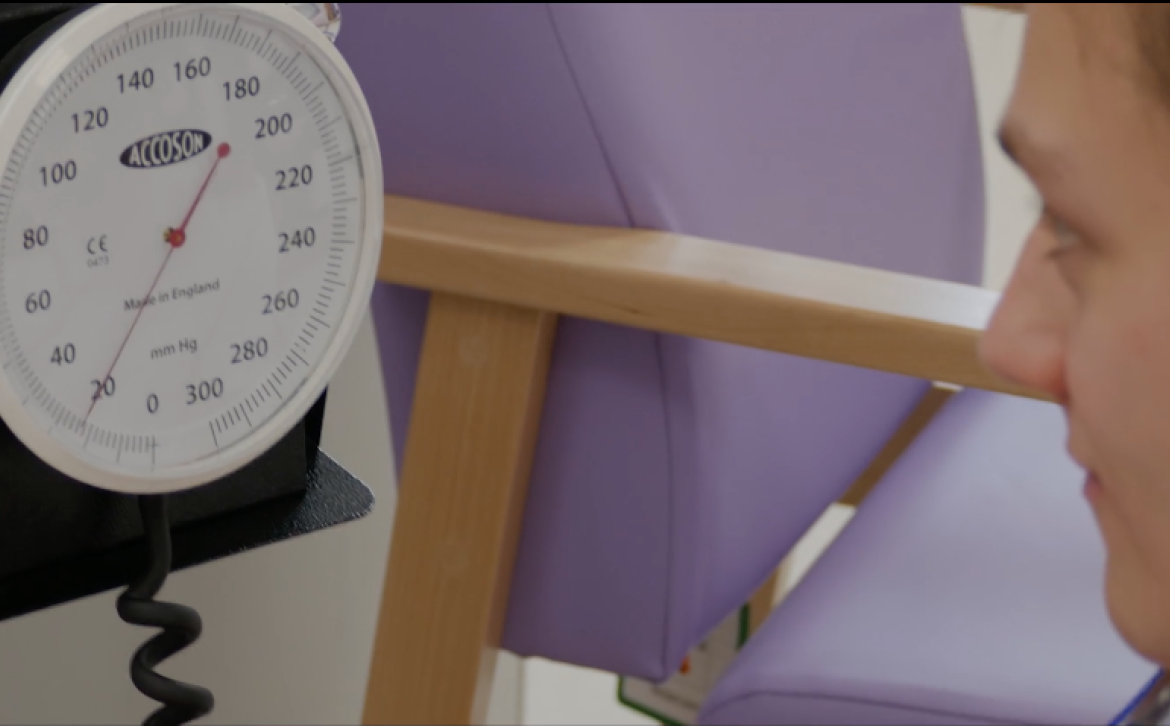
WHAT OUR STUDENTS SAY:
"The support and facilities at the University of Salford were really great! The simulation suite is top of the line, the library, study spaces etc. All modern, comfortable and available for students. I was always using the Allerton learning spaces such as the Hive, which was ideal for study groups, practising presentations, holding society meetings etc. I also had fantastic support from lecturers. The thing I love about Salford the most is that the staff are really approachable and helpful. I was able to meet with lecturers and have discussions whenever I needed it, my personal tutor was absolutely brilliant and still supports and checks in on us even though we have graduated."
FAQs
What's the best advice you can give to help us prepare for the course?
We would recommend refreshing your knowledge and understanding of human biology ahead of the course. The first year focuses on anatomy and physiology, it is important that you understand how the body works and how social systems influence this.
Is there a recommended reading list?
We wouldn't recommend buying any books prior to starting the course, you will have access to e-books and the reading lists once you start.
A great book to introduce you to the role of nursing is ‘The Language of Kindness’ by Christie Watson who provides insight into her experiences of being both a student and qualified nurse.
Looking at 'Anatomy and Physiology' by Ross and Wilsons would be useful for revisiting your biology knowledge.
Where will my placement be located?
Placements are across the Greater Manchester area which covers a number of hospital trusts and community settings to provide you with an excellent variety of learning opportunities. Our aim is that you are allocated to the Trust nearest to your home address and this is where your placements will be.
What will my placement consist of?
The nursing programme is full time and you will be expected to undertake placements with 12-hour shifts, including night shifts.
What will my timetable look like in first year?
Our nursing courses are taught in blocks of theory and placement. You will spend your first eight weeks studying theory full-time at the university before a four week placement. You will spend three days a week in classes, with two days a week directed study.
How will the course be assessed?
There are a number of assessments to compete in both theory and practice. You will receive support throughout your studies to ensure you have the skills and knowledge to succeed.
You will have two attempts on the majority of assessments and in the first year you may have three.
Where can I find out more about DBS and Occupational Health?
You can visit our dedicated DBS and Occupational Health page, where you will find all of the course-specific information you need.
OFFER HOLDER HUB
Go back on our Offer Holder Hub and find out more about accommodation, finance, and wellbeing and support.

